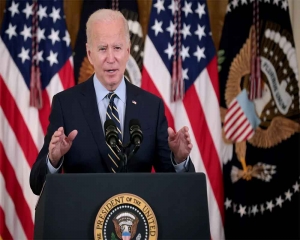The Indian bureaucracy was introduced during the colonial era after the British took complete control over the government through the Government of India Act, 1858. In the initial days, the British Empire exercised its authority through a committee of specialists. And slowly afterwards a complete administrative mechanism evolved and became the sine qua non of the British Empire in India, which was constituted by including Indians who pledged their loyalty and allegiance to the empire.
The result of creation and subsequent evolution of Indian bureaucracy was very helpful in the immediate-post-Independence era, the civil services, particularly the Indian Administrative Service (IAS) has played a crucial role in holding the country together during this time and while many third world countries were still trying to develop a competent and developed civil services, India’s bureaucracy was already existing with the much-needed skill and competence to run the administration.
It provided and continues to provide the nation with the continuity and autonomy in administration and governance even through the turbulent times of political instability, natural calamities and war and continued to contribute in nation-building across various sectors.
But like every other profession it needs to be reformed and augmented. India’s bureaucracy has both the good and the evil within. It has served, led and helped us through both good and bad weathers of the last 75 years since Independence, but with the infirmities it has developed, it is difficult to say that it can continue to lead and serve us in the future.
Time has come when we need a bureaucracy which has the ability for out-of-the-box thinking, which is proactive, imaginative and tech-savvy. The civil services or the bureaucracy has its roots deeply ingrained within the Constitutional scheme and is subject to various rules, regulations, procedures and laws.
However, many of them have become obsolete in practice and the present-day Government has done a commendable job by showing the door to over 1,500 of such laws. It is wrong to say that there is reduction of efficiency in the Indian bureaucracy as it is overcrowded whereas the fact remains that it is understaffed. In this context, the data compiled by the Institute of Conflict Management can be relied upon, which says that the Central Government has about 364 Government servants for every 1,00,000 residents; and of them about 45 per cent are employed in the railways alone. The report further says that about 60 per cent are in Group C posts and 30 per cent are in Group D posts with just 7 per cent holding the top jobs.
So, it appears to be a viable option to directly recruit professionals and experts of repute and competence from the private sector to handle the top positions in the civil services. It is therefore essential to expand the lateral entry up to 15 per cent of the Joint/Additional and Secretary-level positions in the Central Government.
It is also essential to design a mechanism which insulates the bureaucracy from unnecessary political interference and media overreach, which at times behaves as judge, jury and executioner, which is why the bureaucracy has found shelter in ‘audit-proof file work’ and ‘inaction’.
Under such circumstances, decision-making suffers a lot as often punitive actions are taken for taking economic decisions without any direct evidence of bribes or other benefits. Therefore, it is essential that an expert committee with appropriate experience be constituted by the Government to screen the allegations and ascertain them as falling under the corruption category or simply wrong decision category.
It is indeed a challenge for the Government to strive to make the atmosphere conducive and safe for the bureaucrats to take genuine, brave and dynamic decisions which may even sometimes get wrong.
Along with this, the recruitment procedures need to be changed, like psychometric tests of the candidates should be adhered to and there should be mandatory evaluation once a member of civil services completes 15 years of service; and if one fails in such evaluation, he/she should be suitably retired with adequate protection to his/her career and livelihood.With these much-needed and time-appropriate reformations, we can indeed achieve an efficient and reliable bureaucracy essential for nation-building, which is more than just running the administration or supporting the Government.
(The writer is an Additional Central Government Standing Counsel, Central Administrative Tribunal, Cuttack Bench and a Distinguished Adjunct Professor of Law and Media Studies at School of Mass Communication, KIIT University. He can be reached at sjyotiranjan3@gmail.com. Views expressed are personal and not of the Government)

























